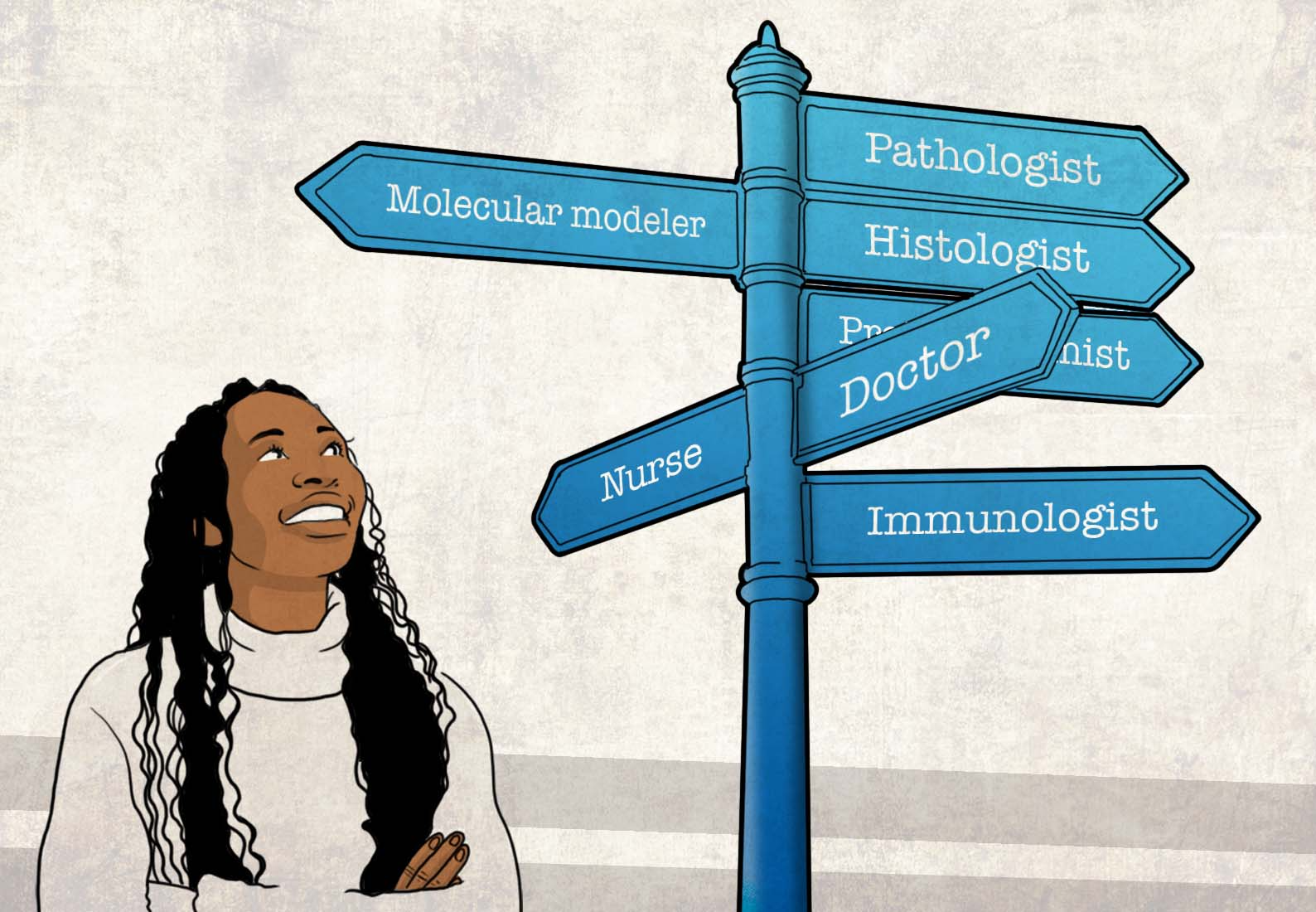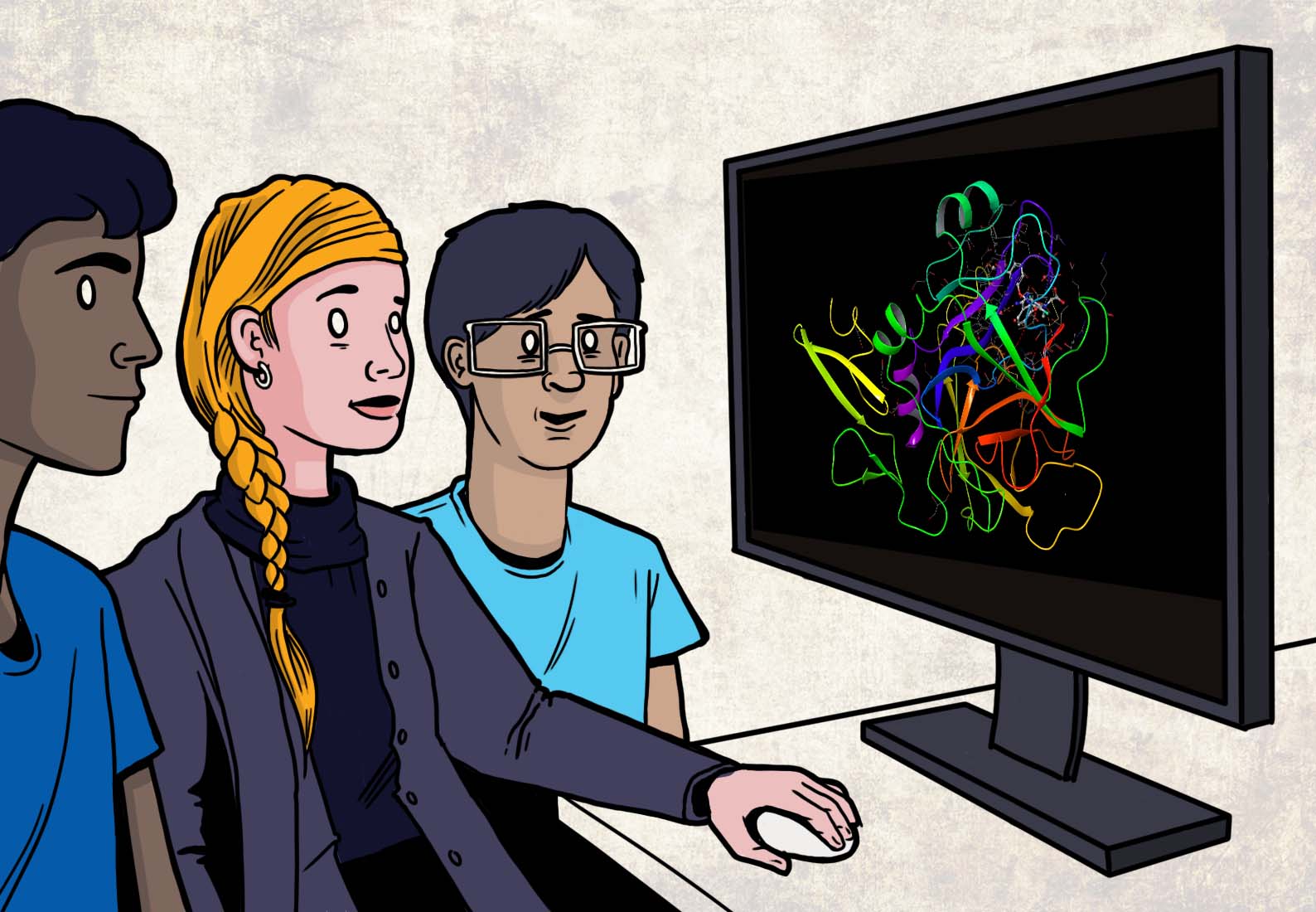For students graduating with STEM degrees, the job possibilities are endless. But sifting through potential career options and ultimately landing a job can be a daunting task, especially for first-generation graduates. LabCentral Ignite’s Career Forge program was designed to empower undergraduate and recently graduated students with the skills they need to find success working in the biotech industry. Schrödinger recently became involved in the Career Forge program in a series of educational activities with LEAS Lab and Lab Central Ignite. We sat down with Lab Central Ignite Managing Director, Krista Licata, as well as LEAS Lab co-founders, Marianne Lindahl-Allen and Uzo Erlingsson, to learn more about the program.
Krista, as Managing Director of Lab Central Ignite, can you describe how the Career Forge Program started, what it entails, and its mission?
Krista: Career Forge was born out of many conversations with students, graduates, professors, hiring managers and professionals in the biotech industry. One of the biggest challenges for recent college graduates, especially first generation college students of color, graduating with a STEM degree is that they often end up under or unemployed in their field of study. We knew of too many students with degrees who were unable to secure employment because their program didn’t teach them adequate technical skills, or the workplace basics needed to actually land a job. That, coupled with the fact that many biotech companies request one to two years of experience for entry-level positions, made us wonder how we could close that gap in a unique way.
We ultimately decided that an upskilling model – an 80-hour basic lab introduction – made the most sense. Our goal with this model is to focus on upskilling for recent college graduates who need it, work with institutions of higher education to decrease the amount of upskilling that’s required and then help match new graduates with opportunities that make sense for their scientific interests and career trajectory. LEAS Labs has been doing a virtual form of this, so they felt like an ideal partner to assist with technical aspects of the program. The program also offers training to enhance non-technical skills, including communication, presentation, time management, and interview skills, which help build students’ confidence in navigating the job search process.
How do you recruit students who enroll in the Career Forge program?
Krista: So far, we have been recruiting participants through our higher education network. Some students have come through referrals from the previous “Forgers,” and we hope referrals will become a big source of students in the future. At a high level, we are trying to support recent college graduates, those who are getting close to finishing a four-year degree, or those that have an associate’s degree with some legitimate lab time.
What do you hope students gain from participating in the program?
Krista: We want to see an improvement in skills and confidence, and our ultimate measure of success is getting students placed into full-time jobs in biotech. One of our Forgers from this last class just accepted an offer with a company at Lab Central, and we’re very proud of that type of success story.
Uzo: Adding to that, many first-generation students and recent college graduates do not necessarily have exposure to the different career opportunities that are possible in the sciences. They’ll graduate with a science major and assume becoming a nurse or doctor is the only path forward in healthcare delivery. In the Career Forge program, part of what Schrödinger helps us do is expose students to the many other careers that are possible with a science background. You can be a pathologist, histologist, immunologist, protein chemist—there are so many different jobs that exist that do not involve going to medical school but still involve patient care. I am an example of that—I went to medical school because I wanted to help patients and be part of their healthcare delivery. But I discovered that I hated blood, and I used to faint in surgery, so I began to wonder what other career paths I could take in science. That led me to genetics.
What was Schrodinger’s involvement in Career Forge? What value did the company bring to the program?
Marianne: Emma Kuczkowski and Wade Miller from Schrödinger’s Education Team led a session for Forgers that covered fundamental concepts and key terminology related to drug discovery and development. As part of the session, they provided a hands-on workshop where students used Schrödinger’s software platform to learn about the pathways and proteins involved in melanoma. Students were able to visualize the protein residues, ligands, waters, and crystallographic artifacts so they could better grasp how binding site regions of proteins are investigated as potential targets for therapeutics.
I think Schrödinger’s contribution to science in general is so important. Traditional drug discovery usually takes years. Learning about how Schrödinger’s technology can speed up that process is such an eye-opener for students. And they don’t need to access a physical lab to get hands-on experience with these concepts. Schrödinger’s visualization techniques make the test tube come alive a little bit more. The software makes the science more real, and that’s really our mission—to make science real and tangible so students are excited to have a career in this field.
Uzo: One of our students just got an internship at her university focused on mathematical modeling for breast cancer. Before she came to Career Forge and used Schrödinger’s software, this student didn’t know that molecular modeling was a viable career path that would allow her to work in patient care without being in the clinic.
Schrödinger’s computational tools wrap around our curriculum very nicely and present an amazing opportunity for our students. It’s a crucial part of making our mission achievable and we are grateful to have it.







